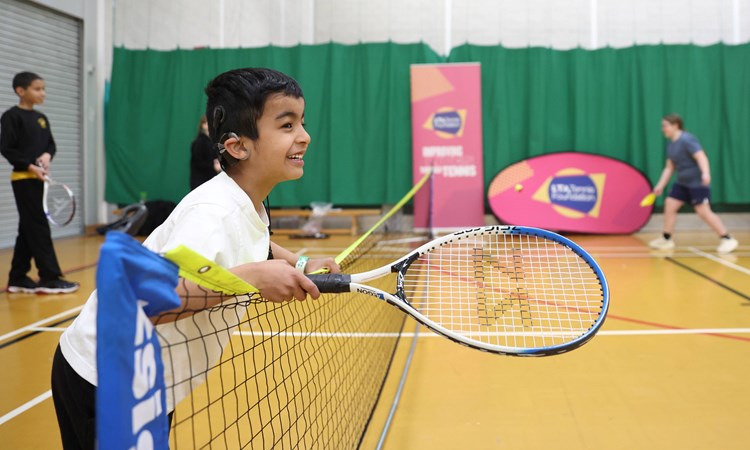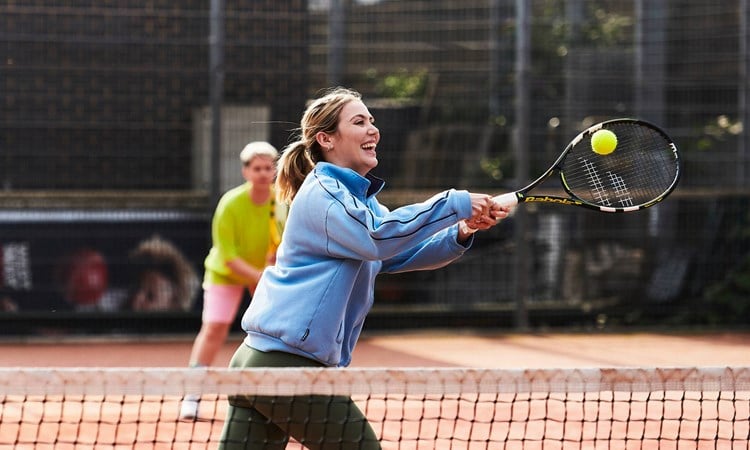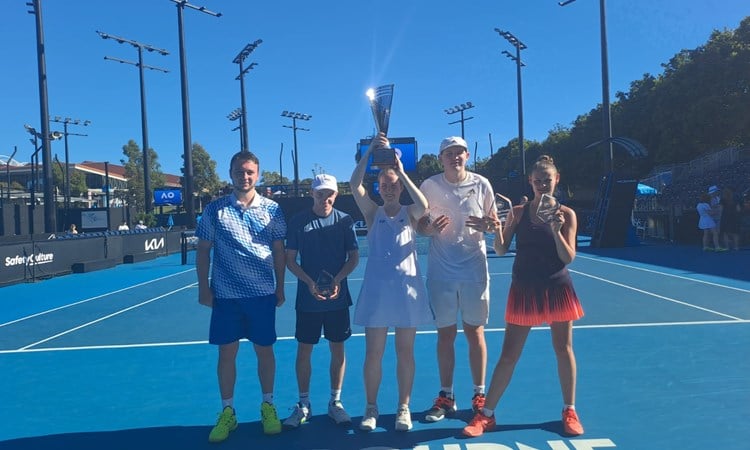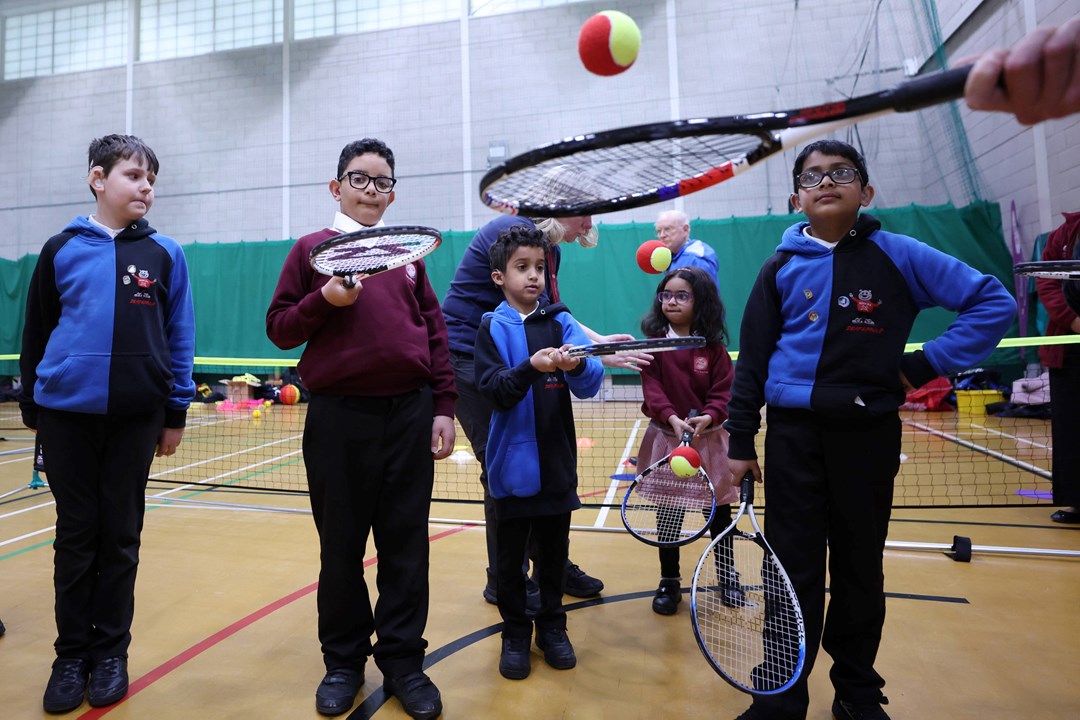
Deaf and hearing children come together for inclusive tennis in Coventry schools
• 2 MINUTE READ
There are more than 30,000 deaf children and young people in the UK, with 78% currently attending a mainstream school without specialist facilities. These children face many barriers on a day-to-day basis, including access to sport.
With funding from the LTA Tennis Foundation, we have collaborated with an inspirational women named Rebecca Bollands, Deputy Head at Earlsdon Primary School, to run Deaf Awareness Festival in Coventry for local schools.
Now in its second year this festival is not just about engaging deaf children in tennis, it is also about educating hearing children about how they can interact with and include their deaf school peers.
Each deaf child who attends the festival can pick a hearing friend from their school to attend the day with them, giving them a better understanding of the barriers that their friend faces on a daily basis and be able to support and understand their needs better going forward.
Over 100 children attended the festival from local schools and took part in a range of tennis activities adapted as needed for each child. Children (and staff!) were also treated to a master class with our National Deaf Tennis Coach, Cathy Fletcher who signed as she was playing to make sure everyone was included.
Festivals like this are really important as it means hearing children get to see that they can participate with their friends who are deaf.
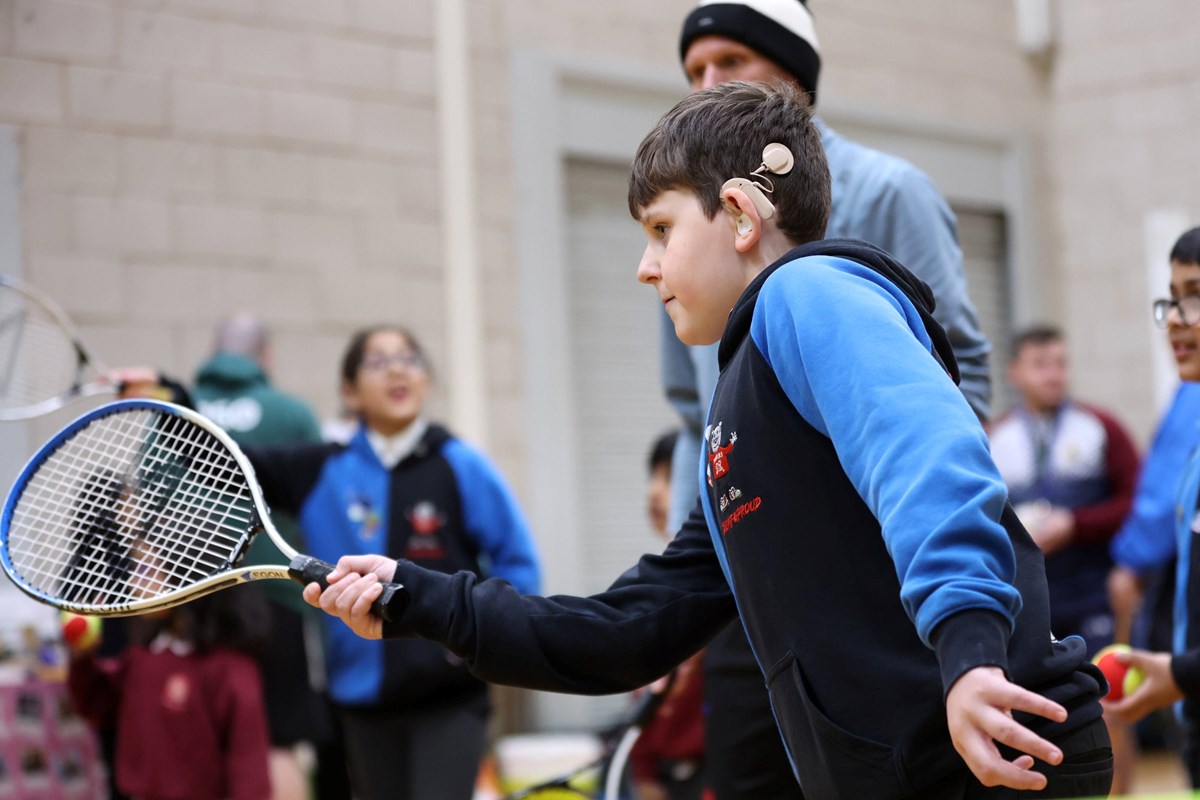
Rebecca, the driving force behind this event says, “I think festivals like this are really important as it means hearing children get to see that they can participate with their friends who are deaf. They can see, as well, how they can support them, and how they can be supported. They can also see, with a role model like Cathy Fletcher, that being deaf is not a barrier to playing sport and playing at the highest level.
"It is just a really positive experience for all the children, for hearing children, seeing a child say with a cochlear implant or a hearing aid it can be quite daunting and they might be quite shy and embarrassed, but actually in this scenario they can talk to them and ask them what it is, and how does that help you - it breaks down that stigma and fear of disability that non-disabled people have.”
Many of the schools in attendance had been the previous year as it had such a positive impact on the students. One teacher, from Stoke Park School said: “We have brought our deaf children who are in Year’s 7 – 9. They all got to pick a hearing friend to come with them to make it more inclusive. This festival is all about deaf awareness, it helps the hearing children to get a better understanding about removing barriers, and that we all enjoy doing the same things - coming together and having a good time.
"Whilst for us, our children have got a resource base in school, so they are not the only deaf children in the school, it can still feel quite isolating. So, for them to come to an environment like this and actually realise there are lots of deaf children or hard of hearing children all around the city is great.”
When asked what was good about the festival one child said, “Just because they (my friend) are deaf, doesn't mean they can't do it, I look after them, and they look after me.”
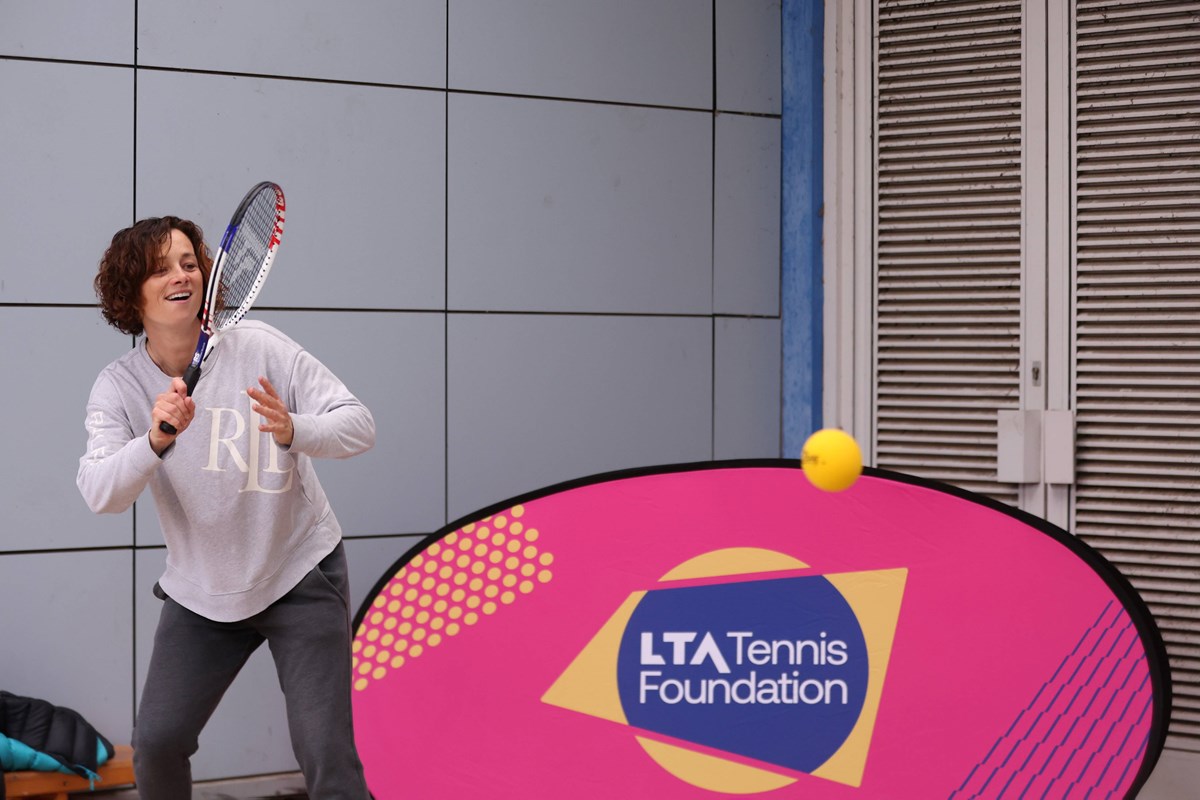
The festival closed with an exhibition match between Cathy and the head Coach delivering the activities, with Cathy taking the win! Cathy said she would love to see more deaf tennis players, so encouraged everyone to keep working hard and enjoying tennis.
Inclusion sits at the heart of our vision of Tennis Opened Up. Wherever you are playing, whatever ability or age, below are some simple tips and guidance from UK Deaf Sport to remember when playing with deaf people or those with hearing loss:
Tips for playing tennis with people who are deaf or have hearing loss
- Talk slowly and directly to people’s faces. Don’t turn your back when giving out instructions. If they lip-read, make sure your lips are easy to see and try not to mumble.
- Use visual aids to help explain exercises and activities.
- It can help if drills and techniques are demonstrated first, so that deaf participants are visually aware of what you are asking them to do.
- Check for understanding – if they don’t understand, try re-phrasing the instruction/information before moving on.
- Before the session starts, encourage deaf participants to position themselves in the group that best supports their communication needs and makes them feel most comfortable.
- Before the session starts, encourage deaf participants to position themselves in the group that best supports their communication needs and makes them feel most comfortable.
Deaf tennis
Want to find out more about deaf tennis and how to get involved? Head to our page below:


